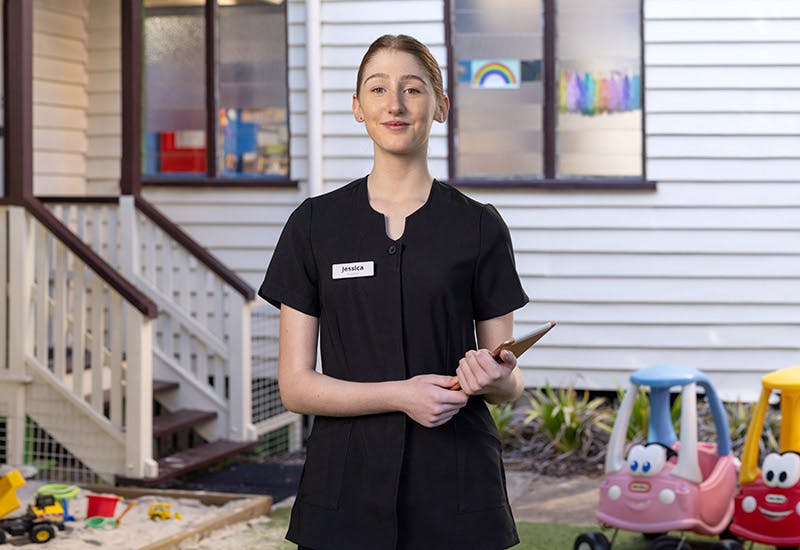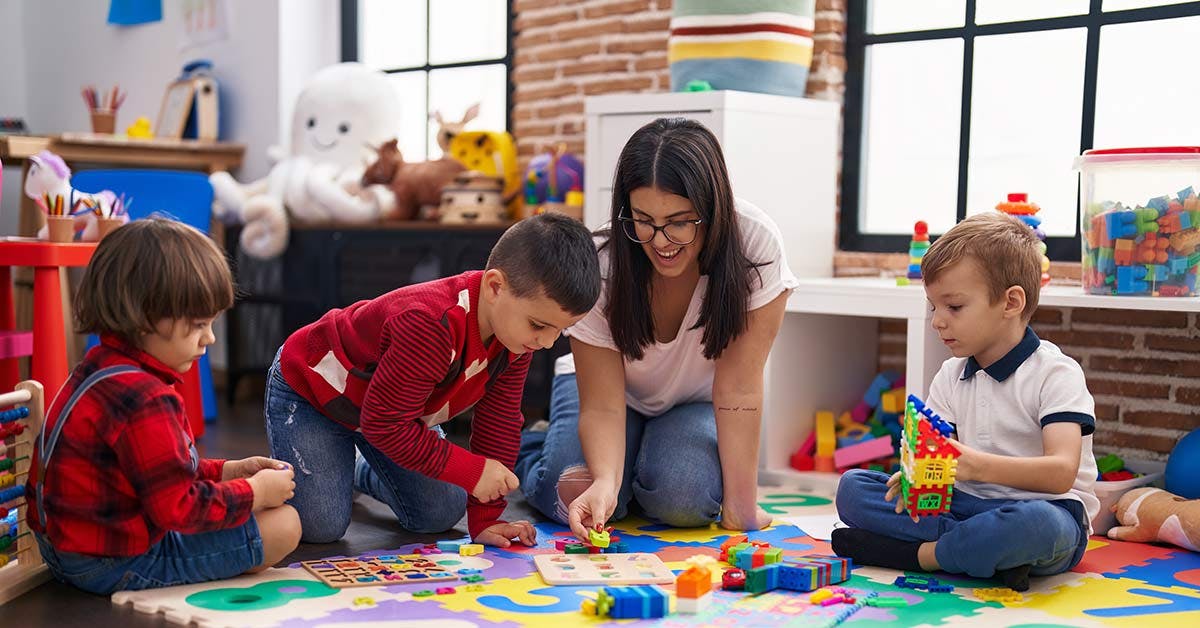11 Aug 2025
Top Early Childhood Education Skills in Demand
Early learning is where children build the building-blocks that shape the rest of their lives, so employers look for graduates with a well-rounded suite of early childhood education skills. Below, we break down the most sought-after abilities, explain why they matter, and show you the simplest path to mastering them.
What is Early Childhood Education and Care (ECEC)?
Early Childhood Education and Care, often shortened to ECEC, covers the learning and wellbeing of children from birth to five years old in settings such as long-day-care, kindergarten and family-day-care. Services operate under Australia’s National Quality Framework (NQF), which sets safety and education standards through the National Quality Standard (NQS).
Why Are These Skills So Important?
Quality rules are strict. Services must show they meet or exceed the seven NQS quality areas, from health and safety to educational program & practice.
Demand for educators is rising. Jobs and Skills Australia warns of ongoing shortages across children’s education and care and notes persistent recruitment difficulty in Health Care & Social Assistance (May 2025).
Parents shop for value. Centres that showcase knowledgeable, caring staff win enrolments, then keep them.
If you’re new to the sector, don’t worry. The skills below are straightforward to learn with the right training and a bit of practice.
Australia’s Most In-Demand Early Childhood Education Skills
1. Clear Communication
Explaining ideas simply, using positive body language and actively listening to children, colleagues and families.
Why centres need it: Communication reduces misunderstandings, supports language development and reassures parents.
2. Empathy & Emotional Intelligence
Recognising feelings (happy, upset, tired), naming them out loud and modelling calm responses.
Why centres need it: Classrooms stay settled and children learn self-regulation skills vital for school.
3. Positive Behaviour Guidance
Setting clear expectations, offering choices and using gentle redirection instead of punishment.
Why centres need it: Aligns with the Early Years Learning Framework (EYLF) focus on respectful relationships.
4. Program Planning
Designing play-based experiences linked to EYLF learning outcomes, then documenting what children learn.
Why centres need it: High-quality programs lift NQS ratings and attract new families.
5. Health, Safety & First Aid
Knowing allergy plans, safe-sleeping guidelines, sun safety and how to respond to an emergency.
Why centres need it: Child safety is non-negotiable and compliance breaches carry heavy penalties.
6. Digital Documentation
Using apps to share photos, learning stories and reminders so parents can see progress in real time.
Why centres need it: Boosts family engagement and centre reputation.
Snapshot: How These Skills Look in Practice
|
Skill |
Everyday example |
Result |
|
Communication |
Explaining “We wash hands to get rid of germs.” |
Fewer illnesses |
|
Empathy |
Saying “You look sad. Let’s take a deep breath.” |
Faster conflict resolution |
|
Behaviour Guidance |
Offering two toy choices instead of saying “No.” |
Happier play rooms |
|
Program Planning |
Setting up a water-play table to explore volume. |
Links to EYLF Outcome 4 |
|
Health & Safety |
Checking allergy lists before morning tea. |
Safer children |
|
Digital Documentation |
Posting a learning story with photos. |
Parents feel involved |
How to Build These Early Childhood Education Skills
Enrol in accredited study. A CHC30121 Certificate III in Early Childhood Education and Care or a CHC50121 Diploma of Early Childhood Education and Care gives you the theory plus supervised placement hours to practise.
Observe experienced educators. Watch how mentors speak with children and families, then try the techniques yourself.
Use reflection journals. Note what worked each day and set a small improvement goal for tomorrow.
Keep learning. Short courses in Auslan, inclusion support or STEM play keep your toolkit fresh.
Seek diverse placements. Rural, urban, mainstream and Montessori centres all teach different approaches.
Qualification Pathways
|
Course |
Best for |
Duration* |
|
CHC30121 Certificate III in Early Childhood Education and Care |
Absolute beginners |
Up to 18 months |
|
Deeper program planning & leadership |
Up to 18 months |
|
|
CHC30121/CHC50121 Certificate III + Diploma of Early Childhood Education and Care |
Fast-track to senior roles |
Up to 36 months |
*Duration is approximate and flexible. All courses blend online study with practical placement, so you graduate confident and job-ready.
Career Outlook & Salary
Job outlook: Government forecasts say healthcare and social assistance, including childcare, will need about 585 000 extra workers between 2024 and 2034 (Jun 2025). That’s roughly one in every four new Australian jobs over the next decade.
The sector is already short about 21 000 qualified early-childhood educators (Early Childhood Workforce Study, Mar 2025), so people who gain the right qualification are likely to find work quickly.Skill shortages: Early Childhood Teachers are listed as a national shortage occupation on the Skills Priority List (Nov 2024).
Average pay: Full-time Diploma-qualified educators earn around $70 000, while Centre Directors typically earn $100 000–$115 000 (SEEK Salary Guide, Jul 2025).
Remember, employers value real-world early childhood education skills even more than academic marks.
Take the Next Step
Ready to study early childhood education and make a lasting impact? Call 1300 616 197 or enquire online to learn how Foundation Education (RTO 22557) can help you turn passion into a profession.
Frequently Asked Questions
What does a childcare educator do?
Childcare educators create safe, engaging play environments; plan learning experiences; and support children’s social, emotional and physical development.
How long does it take to get qualified?
A Certificate III usually takes 18 months of blended online study and practical placement. A Diploma adds another 18 months—or 36 months total for the dual qualification.
Are early childhood educators in demand?
Yes. Jobs and Skills Australia projects strong growth—about 585 000 new healthcare and social-assistance roles, including childcare, between 2024 and 2034.
Related Articles

National Child Protection Week: student action guide for future ECEC educators
National Child Protection Week: a student guide to child-safe practice in ECEC with seven practical actions and links to Cert III and Diploma pathways.

How to choose online childcare courses for your career
Discover the pros and cons of online childcare courses vs. in-person learning. Find the best study mode for your lifestyle and career goals with Foundation Education.

Proud member of

© Foundation Education | RTO Number 22557
